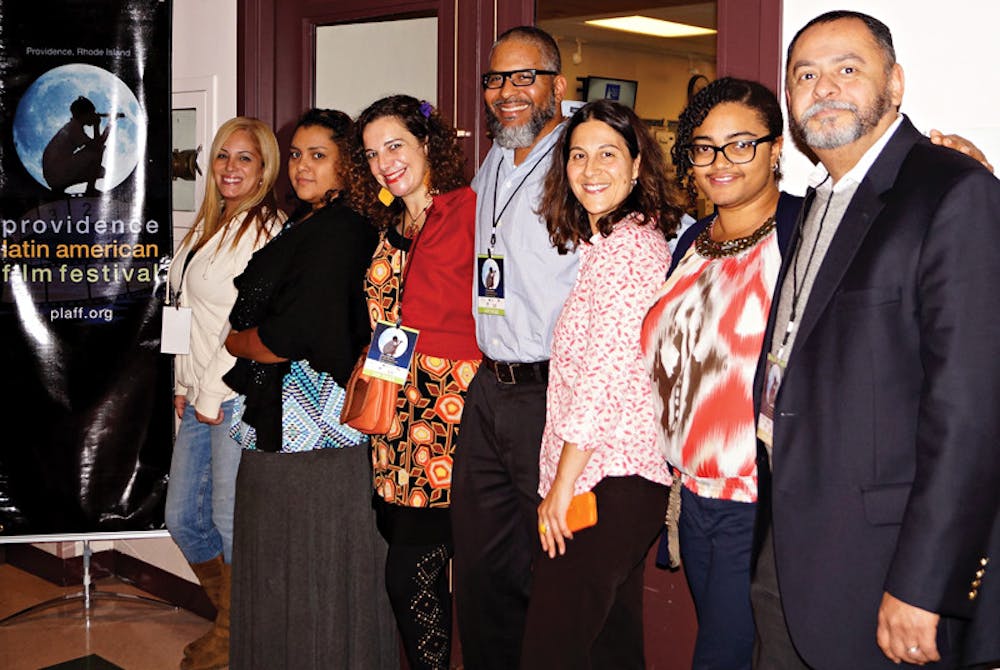Twenty-two years in, the Providence Latin America Film Festival is leading with its typical selection of films that — atypically — directly confronts such permeating societal topics as religion, gender and cultural disparity.
But underneath the art-house sheen, the films serve a dual purpose, celebrating Latin American cinema for the already initiated and opening the eyes of those with a Hollywood-centric worldview.
Responding to its diverse surroundings, the festival — which runs through Sunday and includes up to eight screenings a day spread out between Bryant University, the University of Rhode Island’s Providence campus and the Warwick Public Library — adopts the unofficial goal of “exposing anyone who is open-minded about anything, about the art of film, to see the shading of the Latino experience,” said Tony Aguilar, executive director of PLAFF.
The festival begins with “Esclavo de Dios,” or, for those reading the accompanying subtitles, “God’s Slave.” Recently returning from the international festival circuit, and — like all of PLAFF’s offerings — unreleased in American theaters, “Esclavo de Dios” looks at a young Syrian boy who is raised by the same Islamic extremists who killed his family.
Anointed a martyr and sent to Venezuela to blend in and build a life until the opportune moment to fulfill his mission as a suicide bomber, he struggles between the life he has grown to love and the religious call he believes he faces.
The film juxtaposes this outsider South American experience with that of another minority — an Israeli Mossad agent, native of one of South America’s largest Jewish communities in Buenos Aires, who is bent on stopping the terrorist attack.
Another film with contemporary relevance is “Mujeres con Pelotas,” translating to the double-entendre “Women with Balls.” The documentary focuses on the prevailing chauvinistic attitude that attempts to stop young girls and women from pursuing the Argentine national pastime of soccer, Aguilar said.
Rounding out the genres is the romantic comedy “Corazon de Leon” (“Lion’s Heart”), which, following an emotional connection formed via telephone conversation, pits a tall woman against a very short man on a blind date and subsequently examines the preconceived notions of love that human interaction often has to overcome.
No overall theme encompasses the nine films that will be on view, except that they are all produced in Latin American countries. The basic premise results in films running the gamut of themes and visual styles, Aguilar said. In past years, PLAFF has imposed overarching themes, such as films from a specific country or films directed by women, but the submission process has made this unfeasible, he said.
“We don’t want to be constrained by forcing it that way. I want you, whoever you are, wherever you are from, to come out of the theater saying, ‘Wow, that was a good film,’” he said.
PLAFF joins a Latin American film festival in Boston as one of two in New England, providing access to films viewers would otherwise be unable to find locally, Aguilar said.
Aguilar said though the term “festival” implies a celebration of something familiar, PLAFF takes on an advocacy role, becoming more of a “demystifying” process. At least half the audience is from the East Side of Providence, an area with less of a Latin American influence than across the rest of the city. Local colleges and universities also form a large contingent, he said. For such an English-speaking audience, the experience of a Latin American film may be a new one, something PLAFF attempts to capitalize on.
“People perceive Latin American films as these dusty films from the 1950s and ’60s. They don’t somehow think that these are current, vibrant, edge-of-your-seat, Quentin Tarantino-type films that are going to knock your socks off,” he said.
Exposure can challenge preconceived cultural notions, reminding U.S. audiences that “there’s a big world just south of the border,” he said.
The festival concludes with juried selections of the best film, actor, actress, director and cinematography, chosen by a professor of Latin American studies at Bryant University and two film producers, one of whom was featured in last year’s festival.
The jury selection shows that “what we’re doing is not to show a bunch of films and laugh about it. No. There’s rigorous procedures that go with it,” Aguilar said.

ADVERTISEMENT




